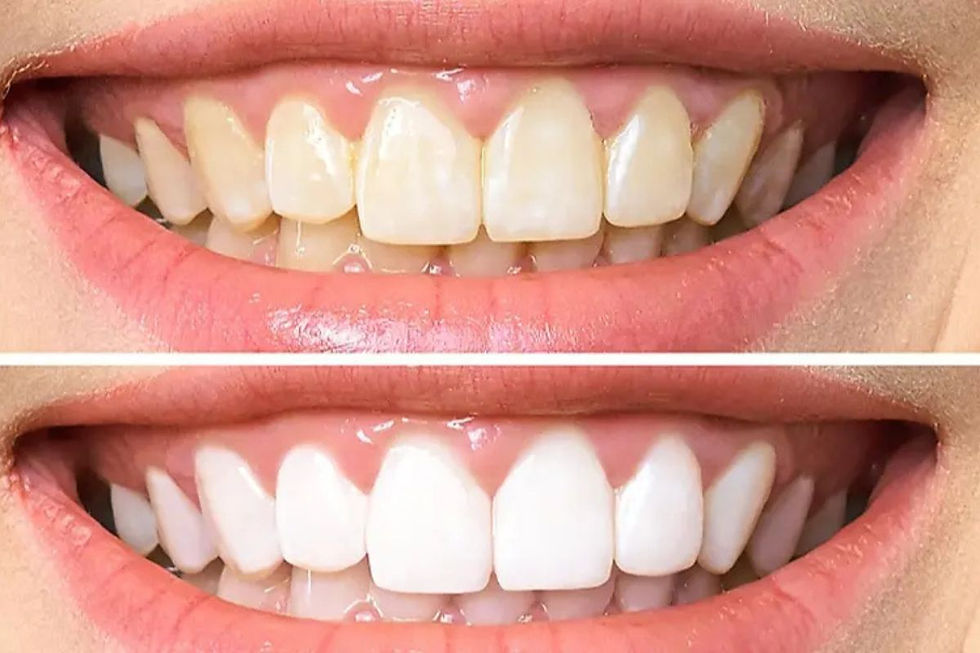Are Sealants Worth the Money?
- meydenbeaurdental
- Oct 30, 2024
- 3 min read

Dental sealants have become increasingly popular as a preventive measure in children's and adults' oral health care. However, many people wonder if they are worth the investment. In this article, we will explore what dental sealants are, their benefits, potential downsides, and whether they provide good value for the money spent.
What Are Dental Sealants?
Dental sealants are thin, protective coatings applied to the chewing surfaces of teeth, primarily the molars. These surfaces have grooves and pits where food particles can get trapped, leading to tooth decay. Sealants act as a barrier, preventing bacteria and food particles from entering these vulnerable areas.
Typically made from a durable plastic material, sealants are painted onto the tooth enamel and harden, providing a smooth surface that is easier to clean. Sealants are most commonly recommended for children, who are at a higher risk for cavities, but they can also benefit adults with decay-prone teeth.
The Benefits of Dental Sealants
1. Cavity Prevention
One of the primary benefits of dental sealants is their effectiveness in preventing cavities. Research has shown that sealants can reduce the risk of decay in molars by nearly 80% in children. This significant reduction in cavities means fewer dental procedures and a healthier smile over time.
2. Cost-Effective Preventive Care
While there is an upfront cost associated with getting sealants, they can save money in the long run. Treating a cavity often involves fillings, which can be significantly more expensive than applying sealants. By preventing cavities with sealants, you may avoid costly dental treatments down the road.
3. Quick and Painless Application
The application process for dental sealants is quick and painless. It usually takes only a few minutes per tooth, and there is no need for anesthesia. The dentist will clean the tooth, apply the sealant, and cure it with a special light. This convenience makes sealants an attractive option for busy families.
4. Durability
Dental sealants can last several years with proper care, making them a long-lasting solution for cavity prevention. Regular dental check-ups will ensure that sealants remain intact, and any necessary repairs can be made promptly.
Are There Downsides to Dental Sealants?
While dental sealants offer numerous benefits, there are some potential downsides to consider.
1. Not a Substitute for Good Oral Hygiene
Sealants should not be viewed as a replacement for good oral hygiene practices. Regular brushing and flossing are still essential to maintain overall dental health. Sealants work best when combined with a comprehensive oral care routine.
2. Limited Coverage
Sealants are only effective on the chewing surfaces of molars. They do not protect against decay on other tooth surfaces or between teeth. This limitation means that individuals should still be vigilant about their overall oral health.
3. Possible Allergic Reactions
Some individuals may experience allergic reactions to the materials used in sealants. While this is rare, it is essential to discuss any known allergies with your dentist before the procedure.
Are Sealants Worth the Money?
When considering whether dental sealants are worth the investment, it is essential to weigh the benefits against the potential downsides.
1. Cost vs. Savings
The initial cost of sealants can vary based on geographic location and dental provider, but they generally range from $30 to $60 per tooth. Given that treating a cavity can cost hundreds of dollars, the preventive nature of sealants can lead to substantial savings over time.
2. Long-Term Health Benefits
Investing in dental sealants can lead to long-term health benefits. Fewer cavities mean less pain, fewer dental visits, and better overall oral health. By preventing decay early on, sealants can set the stage for a lifetime of healthy teeth.
3. Peace of Mind
Knowing that your child or yourself has an added layer of protection against cavities can provide peace of mind. This assurance can be especially comforting for parents concerned about their children’s dental health.
Conclusion
In conclusion, dental sealants can be a worthwhile investment for those looking to protect their teeth from decay. With their proven effectiveness in preventing cavities, potential cost savings, and quick application, sealants offer numerous advantages. However, they should be considered as part of a comprehensive oral health care plan that includes regular check-ups and good hygiene practices.
Ultimately, the decision to invest in dental sealants should be made in consultation with a qualified dental professional, who can provide personalized advice based on individual needs and circumstances.



Comments